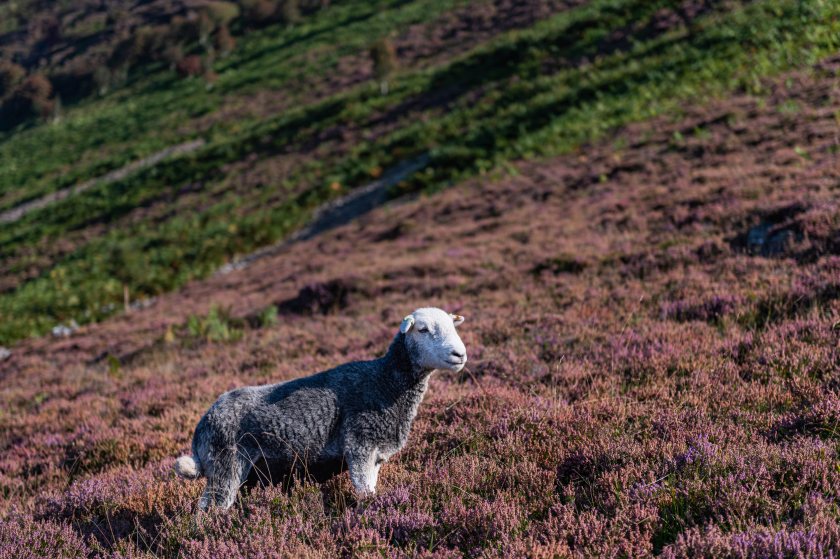Defra's heather burning ban 'threatens upland farming', warns NFU

Government plans to extend the ban on heather burning risk fuelling wildfires and threatening the future of upland farming, the NFU has warned.
Defra’s decision to prohibit heather and grass burning in Less Favoured Areas with peat deeper than 30cm could significantly raise wildfire risks in uplands, according to the union.
The move expands restrictions to 676,628 hectares of deep peat, with the new rules coming into force from 30 September.
Alongside the ban, the licensing system for controlled burns is being reformed, with applicants expected to undertake accredited fire training.
The NFU has urged Defra to recognise farmers’ local knowledge of their land when assessing wildfire risk and deciding licence applications.
Numerous farming bodies responded to the government's spring consultation by warning that tighter restrictions on controlled burning would heighten wildfire risk and undermine the sustainability of upland grazing businesses.
NFU Deputy President David Exwood said: “We are reiterating our calls for these proposals to be put on hold and for an impact assessment to be carried out into wildfire risk, food production, and the viability of upland farm businesses.”
Defra has said licences will only be issued where there is a clear need, including for wildfire prevention. But the NFU cautioned that the licensing regime must not be used to reduce the number of controlled burns, describing the practice as a “vital tool” in vegetation management.
Farmers point to recent fires on the North York Moors as evidence. Areas managed through grazing, cutting and controlled burning appear to have sustained little damage to peat, with vegetation expected to recover within weeks. In contrast, unmanaged sites have suffered extensive damage.
Under the new regulations, land in Less Favoured Areas with peat deeper than 30cm will fall under burning restrictions. Burning will still be possible under licence, with updated safeguards for heritage sites and a revised application process.
Applicants will usually be expected to complete accredited fire training, though Defra has said this will not be a blanket requirement.
The department also plans to publish an updated Heather and Grass Management Code this autumn, following workshops with industry groups, including the NFU.
The NFU has stressed that upland farmers already face significant pressures, including changes to inheritance tax, limited access to Environmental Land Management schemes, cuts to delinked payments, and new proposals in the government’s Land Use Framework.
David Exwood said the government’s approach could have serious consequences. He highlighted the importance of grazing and controlled cool burning in preventing more severe fires.
“Careful management of our most iconic landscapes such as livestock grazing and controlled cool burning of heather and grass clearly works.
"Despite the devastating wildfire on Langdale Moor, we understand there has been little damage to the deep peat where controlled burns have taken place, and the vegetation is expected to recover within weeks.
"We must do all we can to ensure the scenes on the North York Moors don’t become common place.”
Mr Exwood acknowledged the government’s ambition to restore peatland through blanket bog creation and restoration but argued that banning burning alone would not deliver results. He said more research was needed into whether deep peat areas could realistically be rewetted.
“We are reiterating our calls for these proposals to be put on hold and for an impact assessment to be carried out into wildfire risk, food production, and the viability of upland farm businesses."
Announcing the ban extension, Environment Minister Mary Creagh said: “Our peatlands are England’s Amazon Rainforest – home to our most precious wildlife, storing carbon and reducing flooding downstream.
“Burning on peatland releases harmful smoke ruining local air quality and damaging the precious ecosystems found in these iconic landscapes.
“Restricting burning will help us restore and rewet peatlands. These new measures will create resilient peatlands that are naturally protected from wildfires.”








